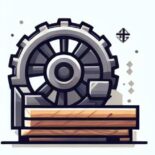Essential Equipment Maintenance Tips for Restaurant Owners
Restaurant owners know how crucial it is to maintain their equipment in top condition to ensure smooth operations and food safety. Here are some essential equipment maintenance tips that every restaurant owner should consider:
Regular Cleaning: One of the most important maintenance tasks is regular cleaning of all equipment. This not only ensures hygiene and food safety but also prevents the build-up of grime and dirt, which can affect the performance of the equipment.
Follow Manufacturer Guidelines: It’s vital to adhere to the manufacturer’s maintenance guidelines for all equipment. This includes scheduled inspections, lubrication, and parts replacement to keep everything in optimal working condition.
Train Staff: Proper training of the restaurant staff on how to use and clean the equipment can prevent misuse and damage. Staff should also be trained to identify any signs of equipment malfunction.
Regular Inspections: Implement a schedule for regular inspections of all equipment to identify any issues early. This proactive approach can help in preventing unexpected breakdowns and costly repairs.
Invest in Quality Equipment: Purchasing high-quality, durable equipment can reduce the frequency of breakdowns and maintenance. While it may involve a higher initial investment, it can lead to long-term cost savings.
By following these essential equipment maintenance tips, restaurant owners can prolong the lifespan of their equipment, maintain food safety standards, and prevent unexpected downtime. Proper maintenance not only ensures the smooth functioning of the kitchen but also contributes to the overall success of the restaurant.
Streamlining Restaurant Equipment Maintenance: Best Practices
Efficient restaurant equipment maintenance is crucial for ensuring that all operations run smoothly and that food quality remains consistently high. Streamlining restaurant equipment maintenance involves implementing best practices to minimize downtime, reduce costs, and maximize the lifespan of your equipment.
One of the best practices for streamlining restaurant equipment maintenance is to develop a comprehensive maintenance schedule. This schedule should include regular inspections, cleaning, and servicing of all kitchen equipment. By proactively maintaining your equipment, you can identify and address minor issues before they escalate into major problems that require costly repairs.
Investing in high-quality equipment from reputable manufacturers can also streamline maintenance efforts. Well-made equipment is often easier to maintain and less prone to frequent breakdowns. Additionally, working with reliable suppliers can ensure timely access to replacement parts and professional servicing when needed.
Implementing a digital maintenance management system can significantly streamline restaurant equipment maintenance. Such systems can help track maintenance schedules, equipment performance, and service history. By leveraging technology, restaurant owners can efficiently manage maintenance tasks, set automatic reminders for routine checks, and access equipment documentation.
Furthermore, training and educating kitchen staff on equipment operation and basic maintenance procedures can contribute to streamlined maintenance efforts. Employees who understand how to use and care for equipment properly are less likely to cause equipment malfunctions due to misuse or neglect. Regular training sessions and clear, accessible guidelines can empower staff to contribute to equipment maintenance proactively.
Ultimately, by implementing these best practices and maintaining a proactive approach to equipment care, restaurant owners can streamline maintenance processes, minimize downtime, and optimize the overall efficiency and performance of their kitchen equipment.
